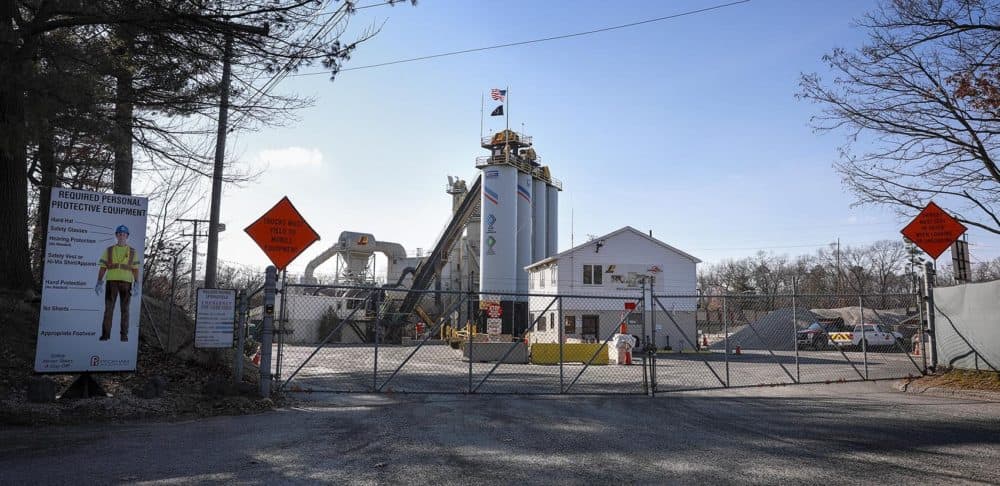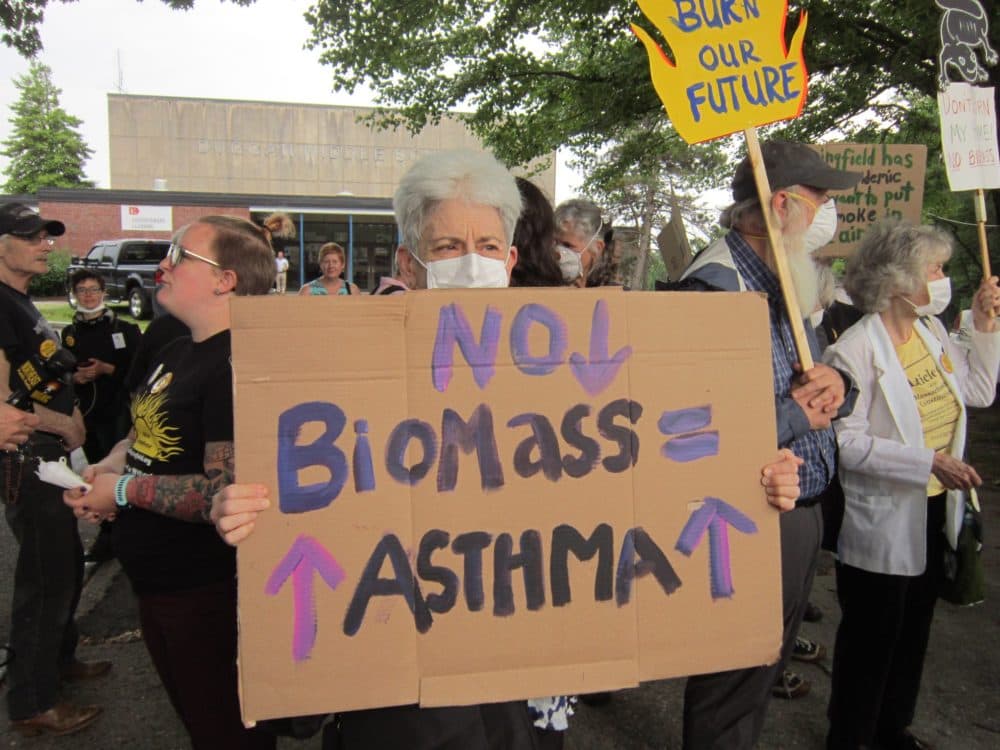Advertisement
Mass. Revokes Air Permit For Controversial Biomass Facility In Springfield

In a big win for public health and environmental justice advocates, the Massachusetts Department of Environmental Protection has revoked a key air permit for a controversial proposed biomass plant in Springfield.
The permit for the Palmer Renewable Energy facility — technically called the “Final Plan Approval” — was issued almost nine years ago, and according to the state, was revoked because of a lag in construction activities as well as major public health and environmental justice concerns.
Springfield City Councilor and long-time opponent of the Palmer facility, Jesse Lederman, praised the decision and called it “welcome news in the City of Springfield.”
“The days of polluters being rubber stamped in communities like ours are over,” he said in a statement. “For too long communities like ours have been targeted by out of town developers seeking to get rich at the expense of the public health and environment of our children, seniors, and all residents, leading to generations of concentrated pollution and health and environmental inequities.”
First proposed in 2008, the 35 megawatt Palmer facility drew immediate public ire, but managed to receive a series of permits and green lights from local and state regulators. It got its final air permit from MassDEP in 2012 and was supposed to begin construction soon after.
In a letter accompanying the permit revocation, Michael Gorski of MassDEP explained that while there are some signs of pre-construction activities at the site, the company has not meaningfully “commenced construction.” Under state law, MassDEP can rescind a project’s final permit if it doesn’t begin construction within two years, or if it puts construction on pause for more than a year.
“The revocation of the approval for the Palmer biomass plant is a victory for Springfield residents, the health of our communities, and our fight for a livable planet,” Sens. Ed Markey and Elizabeth Warren said in a joint statement. “We are thrilled to celebrate this victory with the Springfield residents who fought so passionately against it. Today’s decision will save lives.”
If built, Palmer would have been the state’s only large-scale biomass plant and would have burned about 1,200 tons of waste wood per day in the heart of a state-designated environmental justice community. Nearly one in five children in Springfield have asthma; the air quality is so poor that the Asthma and Allergy Foundation of America has ranked it the “Asthma Capital” of the country.
Despite the Palmer plant’s plans for a state of the art facility, burning wood for electricity would still release a lot of harmful pollutants into the air.
“The last thing the asthma capital of the U.S. needs is a plant spewing air pollution and further imperiling public health,” Caitlin Peale Sloan, interim director of the Massachusetts Chapter of the Conservation Law Foundation, said in a statement. “Springfield residents made their opposition to this polluting plant clear, and DEP officials have handed them a win today. The fact is that burning biomass is neither clean nor renewable and it should be left in the past with fossil fuels.”

There is great debate throughout the country about whether burning wood for electricity is renewable. In multiple public meetings and op-eds, the plant’s developer, Vic Gatto, argued that it is, and that the plant would provide a much-needed depository for what he said is a waste wood problem in the state.
In revoking the air permit, the state did not weigh in on this debate, nor did it totally shut the door on the possibility that the plant could move forward. The company can resubmit the plant proposal, but according to Energy and Environmental Affairs Secretary Kathleen Theoharides, to get approval it would have “to demonstrate the proper air controls are in place, and consider air quality impacts on the surrounding Environmental Justice community.”
Massachusetts recently passed a new comprehensive climate law that included stronger provisions about environmental justice communities.
“I am overjoyed that this 12-year battle looks like it’s coming to a close,” said Tanisha Arena, executive director of Arise for Social Justice, a nonprofit that aids and advocates for lower-income residents of Springfield. “Residents of Springfield can literally breathe a sigh of relief.”
The plant's owner did not immediately respond to a request for comment, and has 10 days to request a rehearing on the permit revocation.
This article was originally published on April 02, 2021.
